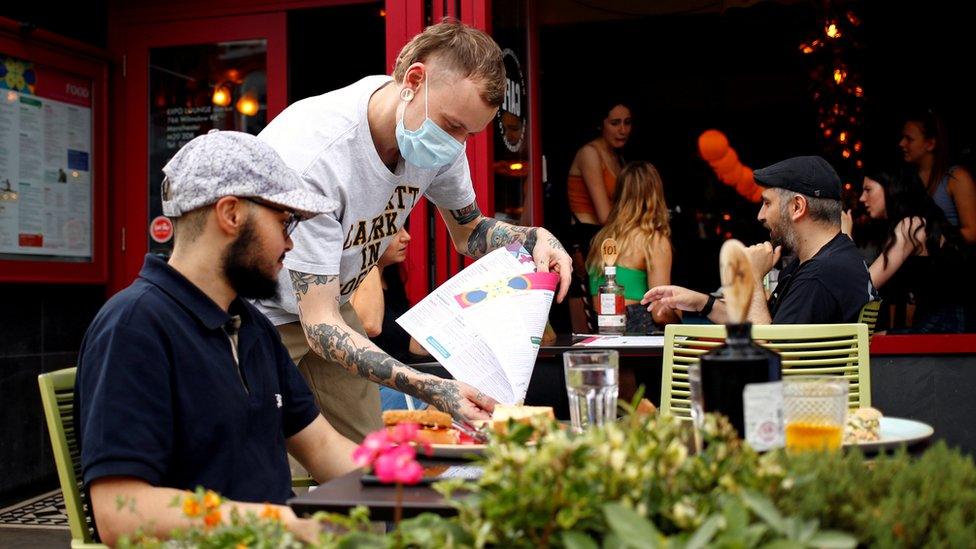Unemployment rate hits highest level in three years
- Published
- comments
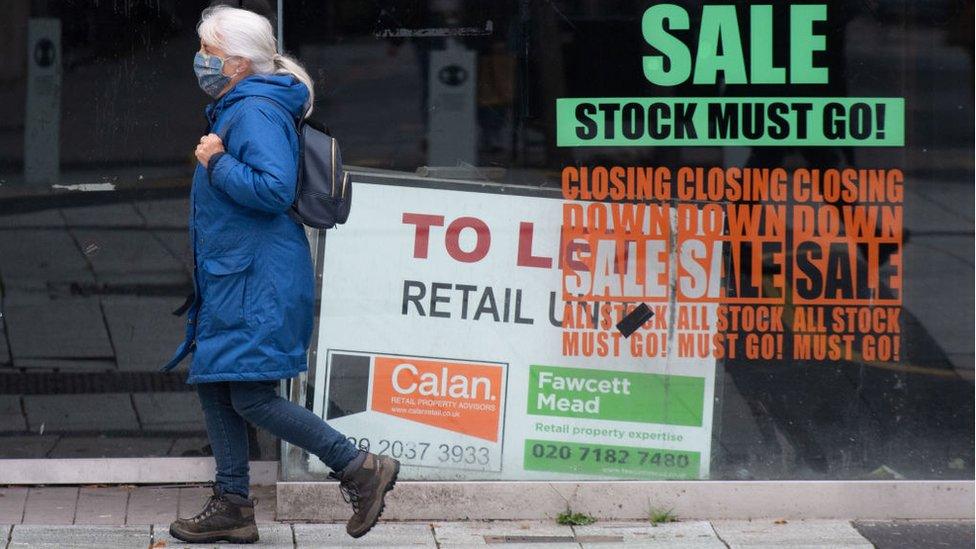
The UK unemployment rate has surged to its highest level in over three years as the pandemic continues to hit jobs.
The unemployment rate grew to 4.5% in the three months to August, compared with 4.1% in the previous quarter.
Meanwhile redundancies rose to their highest level since 2009, the Office for National Statistics (ONS) said., external
It comes as the government prepares to impose tough local lockdown rules that will force some businesses to close, potentially leading to more job losses.
Who has been affected?
According to the ONS, an estimated 1.5 million people were unemployed between June and August, while redundancies stood at 227,000.
Jonathan Athow, the ONS's deputy national statistician for economic statistics, said there had been a "sharp increase" in those out of work and job hunting since March.
"Overall employment is down about half a million since the pandemic began and there are particular groups who seem to be most affected, young people in particular," he told the BBC's Today programme.
"[Of those out of work] about 300,000 are aged 16-24, so about 60% of the fall in employment... that's really disproportionate."
Mr Athow said the large number of redundancies had been focused on sectors such as hospitality, travel and recruitment.
The number claiming work related benefits, meanwhile, hit 2.7 million in September - an increase of 1.5 million since the beginning of the crisis in March.

What do the unemployed say?
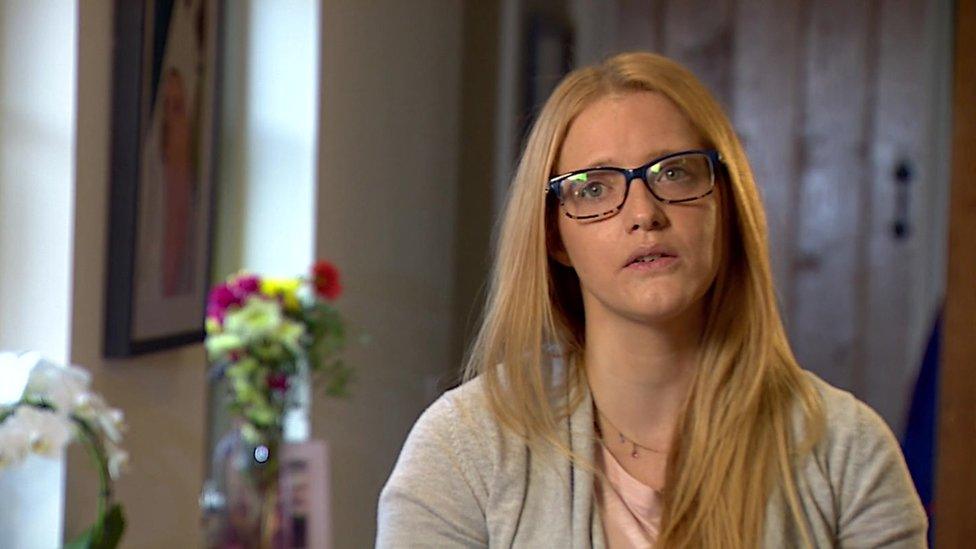
Sophia Royle was a project manager working for an e-learning firm. She was put on furlough in May, but then made redundant at the end of August.
"The jobs market is now flooded with people that have been made redundant and are looking for jobs," she says.
The problem is that because of the changing nature of the market, she is no longer just competing against people who live locally.
"A lot of these jobs are remote. They're online," she says. "That means you're competing with the whole of the UK."
Sophia and her partner are worried about paying the mortgage. She is also six months pregnant and only qualifies for statutory maternity leave, which she will start receiving in December.
"I've stopped looking for jobs, because how can I approach someone with that piece of news, that I'm not going to be around in six weeks' time?" she says.

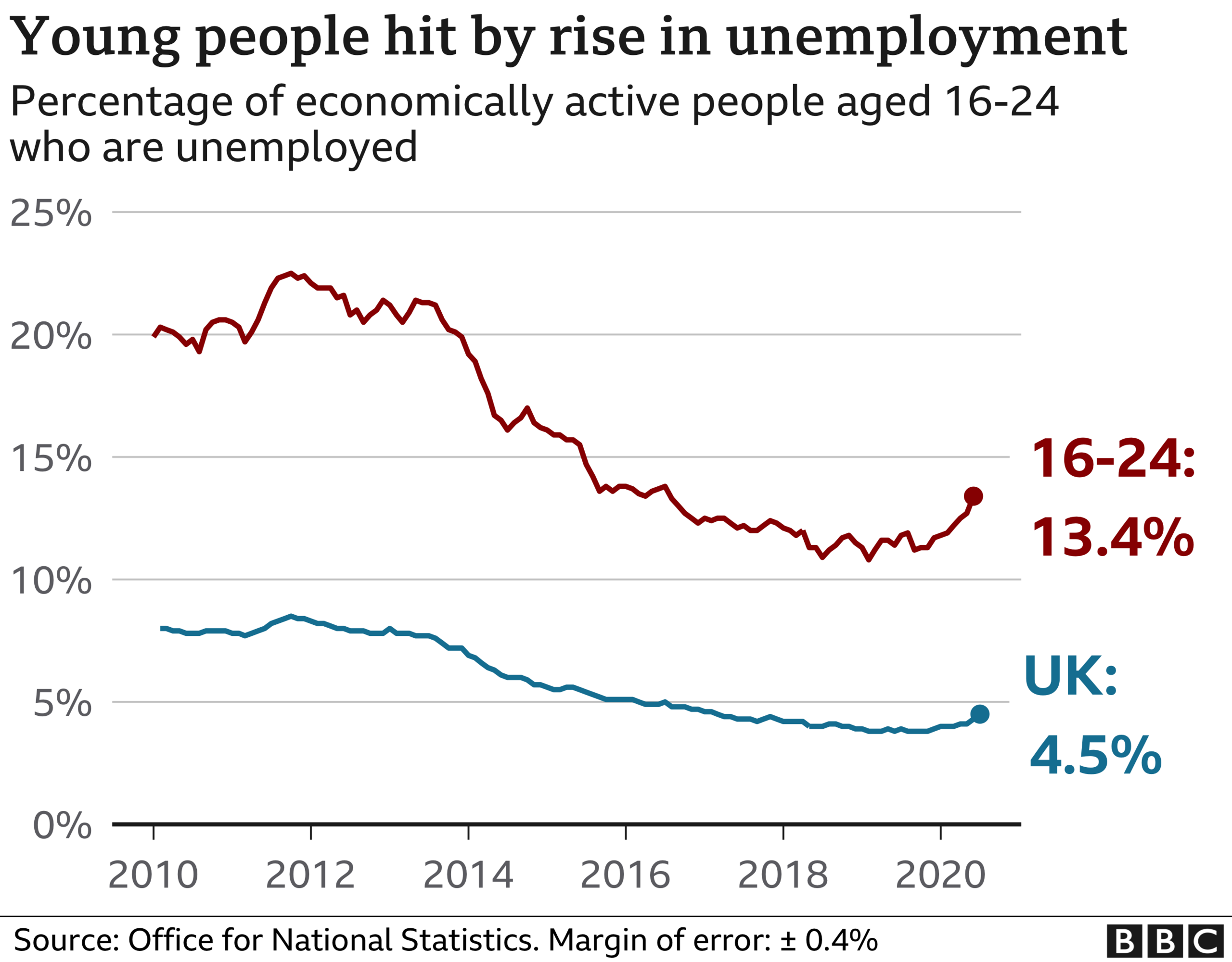
Will things get worse?
Most expect unemployment to rise further after the government's furlough scheme is replaced with a less generous wage support package in November.
On top of this, from this week tougher local restrictions will force pubs, bars and other hospitality and leisure businesses in England to close in the most infectious areas, as has already happened in parts of Scotland.
Bank of England Governor Andrew Bailey told the House of Lords Economic Affairs Committee that the second wave of coronavirus cases hitting the UK economy is likely to increase the long-term damage to the economy as businesses go bust and consumer behaviour changes.
"It's very hard at the moment, I have to be honest with you, to put an estimate on how much scarring there will be," Bailey told the House of Lords' Economic Affairs Committee.
"As Covid returns, and if the prospect is that it will go on for longer... the prospect of scarring could increase."
The government has offered to pay two thirds of workers' wages if their employer is affected, but some say this falls short.
"The fallout from the Covid-19 recession is intensifying," said Paul Dales, chief UK economist at Capital Economics.
"What's more, the prospect of the latest Covid-19 restrictions leading to the economic recovery stalling, if not going into reverse, means worse lies ahead."
Analysis from Citibank suggests the unemployment rate could hit 8.5% in the first half of 2021 - a level not seen since the early 1990s.

How do you improve your chances of finding work?
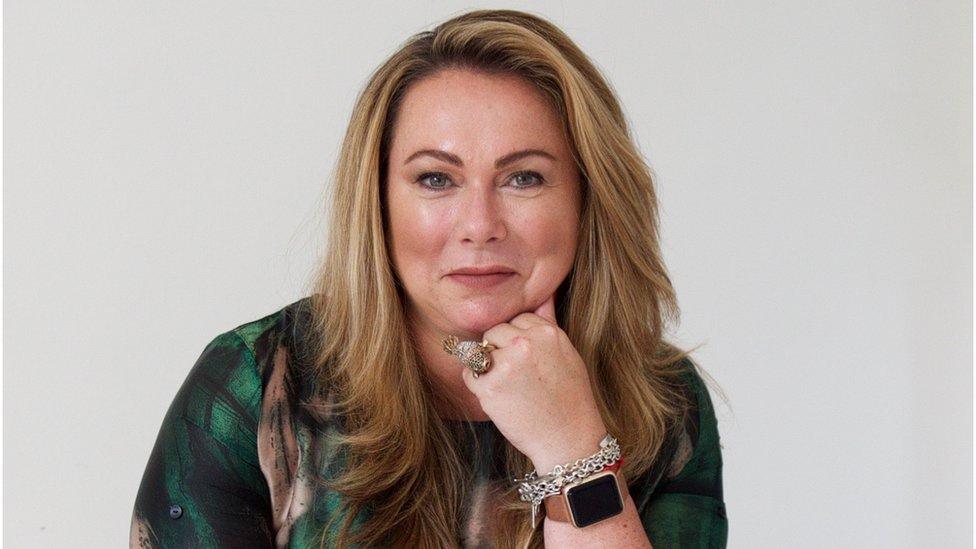
Holly Tucker, founder of e-commerce firm Not On The High Street, says she's looking for one thing in potential recruits: "Creativity."
"I want to be wowed by the application, whatever the role," she says. "I want to see the care, attention to detail and creativity in their application that I will want to see from them in their job every day."
She suggests a handwritten letter or an imaginative design as a good starting place.
"Some of my favourite CVs have gone the extra mile and showcased their work within their application and not just told me about it. Are you a video editor? Then send me a video CV. Are you an animator? Animate it! Are you a copywriter? Be bold and rewrite some of the brand's copy and show them how it should be!"

What has the reaction been?
Trade union body the TUC says the UK is on the "precipice of an unemployment crisis" and called for more government support.
"Wage replacement should be 80% for businesses who have to shut," said general secretary Frances O'Grady.
"We need a more generous short-time working scheme for firms which aren't required to close but will be hit by stricter local restrictions. And self-employed people in local lockdown areas need help too."
Anneliese Dodds, Labour's shadow chancellor, said the government needed to fix the test and trace system and provide "fair funding" to local areas as soon as restrictions are applied.
Chancellor Rishi Sunak said he had been honest with people from the start that he would not be able to save every job during the pandemic.
"But these aren't just statistics, they are people's lives," he added.
"That's why trying to protect as many jobs as possible and helping those who lose their job back into employment, is my absolute priority."
He said for those who do lose their job, there would be new opportunities through apprenticeships, traineeships and the £2bn Kickstart scheme, as well as extra work search support.


The headline jobs numbers are beginning to catch up with grim jobs numbers elsewhere. Unemployment above 1.5 million and the rate at 4.5% represent considerable rises over the third quarter, and three year-highs, though still relatively low by international and historic standards.
The redundancy numbers were up in the quarter to August by a record, partly reflecting the start of the phased withdrawal of the furlough scheme.
There were some signs that the government's attempt to reopen and boost the economy had some impact. Payroll numbers stabilised, up a little, though still 629,000 down on March. Vacancies were up too during the month of "Eat Out to Help Out".
So these numbers reflect both the headline numbers catching up with the grim reality of the jobs market since the shutdown - but also a bump to certain parts of the economy in August. The numbers will continue to get tougher from here.

- Published26 March

- Published13 October 2020
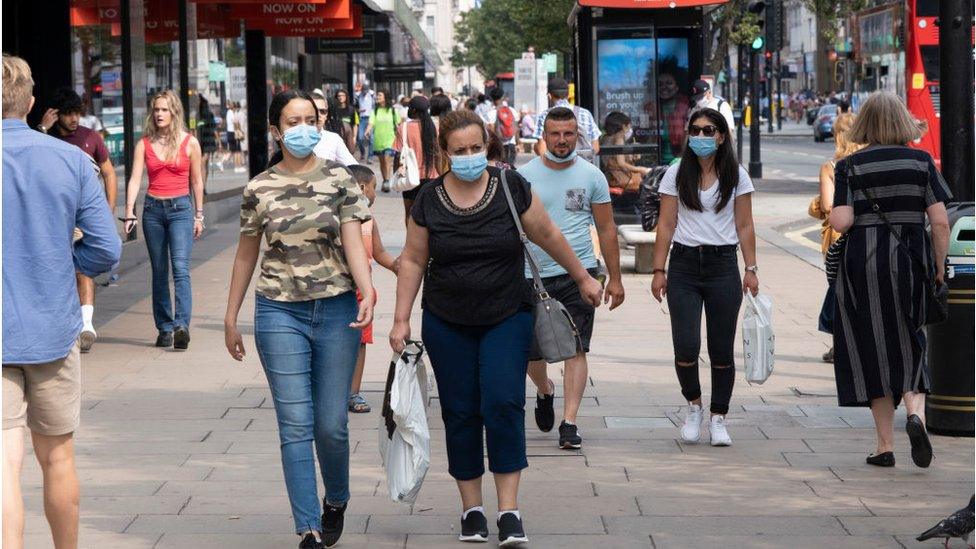
- Published9 October 2020
